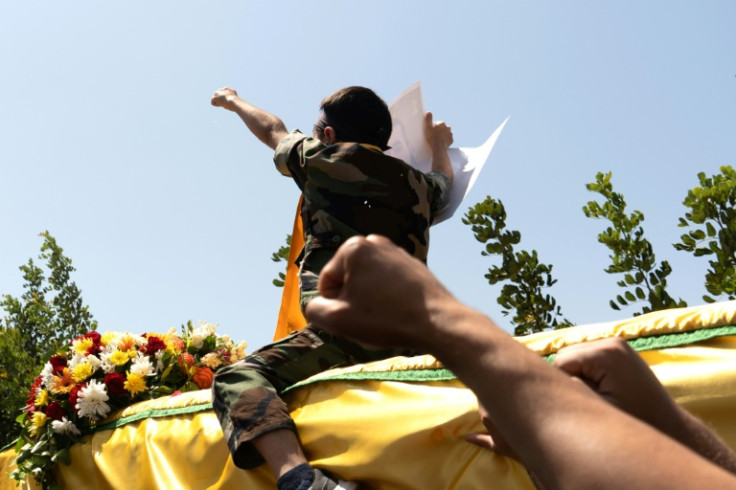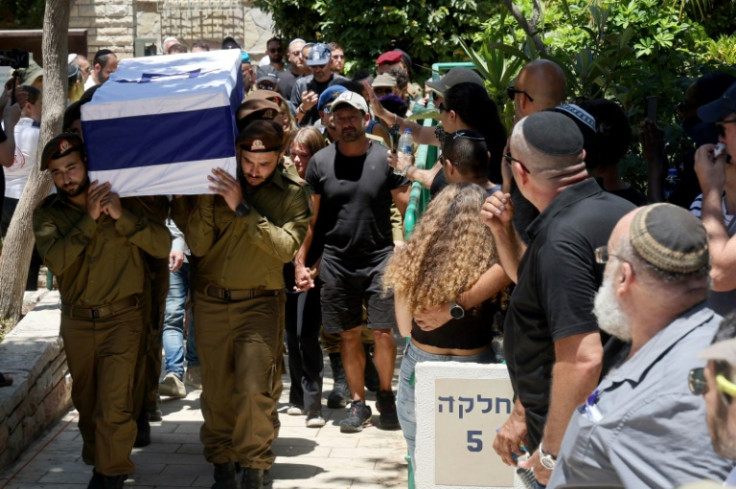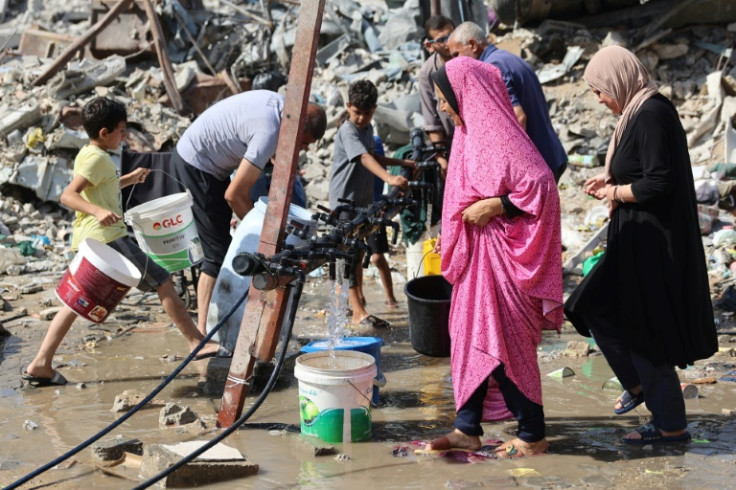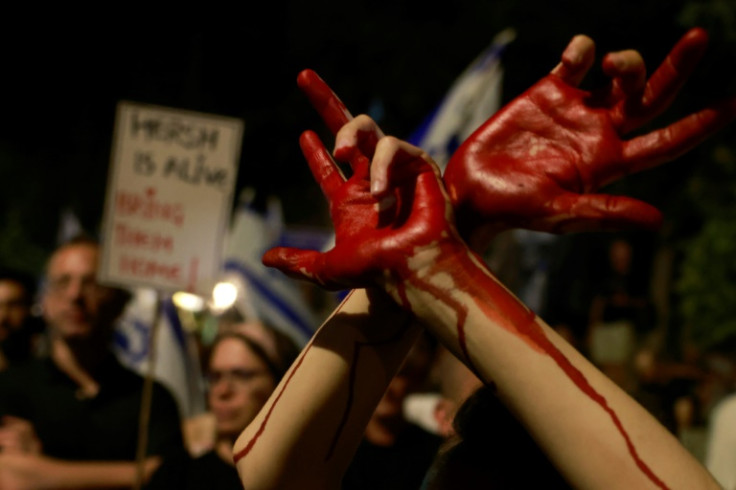Red Cross Says 22 Killed In Shelling Near Gaza Office

The International Committee of the Red Cross said 22 people were killed in shelling that damaged its Gaza office Friday, as the Israeli army intensified strikes in the besieged Palestinian territory.
Exchanges of fire across the Lebanese border between Israel and the powerful Iran-backed militant group Hezbollah have also escalated in recent weeks, raising fears of an even wider war.
UN Secretary-General Antonio Guterres said Friday that the cross-border hostilities must not turn Lebanon into "another Gaza", warning of the risk of triggering a catastrophe "beyond imagination".
His warning came as Israel stepped up its strikes in the Gaza Strip, where one hospital in Gaza City reported at least 30 dead.
Further south, the ICRC said 22 bodies and 45 wounded people were taken to a Red Cross field hospital after shelling with "heavy calibre projectiles" near its Gaza office, which was surrounded by displaced people living in tents.
"Firing so dangerously close to humanitarian structures puts the lives of civilians and humanitarians at risk," the ICRC said on social media platform X.
The health ministry in the Hamas-run territory blamed the shelling on Israel, saying there were 25 killed and 50 wounded in the Al-Mawasi area near the ICRC office, not far from Rafah.
An Israeli Defense Force spokesman did not acknowledge any role in the incident but said it was "under review".
In the north of the Strip, the director of Gaza City's Al-Ahli hospital was quoted by the territory's health ministry as reporting 30 dead in strikes.
"It has been a difficult and brutal day in Gaza City. So far, around 30 martyrs have arrived at the Al-Ahli Arab Hospital," doctor Fadel Naeem was quoted as saying.
Civil defence agency spokesman Mahmud Basal said five municipal workers died when a garage in the city was bombed.
Israel's military reported operations on Friday "north and south of the Central Gaza Strip Corridor".
The operations around Gaza coincided with flaring hostilities along the Lebanese border.
Lebanon-based Hamas ally Hezbollah said it had fired dozens of rockets at a barracks in northern Israel on Thursday in retaliation for a deadly air strike in south Lebanon.
Israel said a Hezbollah operative was killed in that strike.
Hezbollah also claimed a number of attacks on Israeli troops and positions near the border on Friday, including two using drones.
The Israeli army said it had carried out multiple retaliatory strikes on both days.
Israeli jets on Friday struck a "Hezbollah military structure in the area of Khiam, a Hezbollah military post in the area of Meiss El Jabal, and Hezbollah terrorist infrastructure in the areas of Taybeh and Tallouseh in southern Lebanon", the army said in a statement.
Experts are divided on the prospect of a wider war, almost nine months into Israel's campaign to eradicate Hamas in the Gaza Strip.
Amid the escalating exchanges between Israel and Hezbollah, Israel's military said Tuesday that plans for an offensive in Lebanon had been "approved and validated".
Hezbollah chief Hassan Nasrallah said "no place" in Israel would "be spared our rockets" in a wider war, and also threatened nearby European Union member Cyprus.
Citing the "bellicose rhetoric" on both sides, UN chief Guterres said Friday that the risk of all-out war was real.
"One rash move -- one miscalculation -- could trigger a catastrophe that goes far beyond the border, and frankly, beyond imagination," he said.
Israel's ally the United States has appealed for de-escalation.
The violence on the Lebanon border began after the October 7 attack on southern Israel by Hamas militants from Gaza. That attack resulted in the deaths of 1,194 people, mostly civilians, according to an AFP tally based on Israeli official figures.
The militants also seized hostages, 116 of whom remain in Gaza although the army says 41 are dead.
As of Thursday, Israel's retaliatory offensive had killed at least 37,431 people, also mostly civilians, according to Gaza's health ministry.
Months of negotiations towards a truce and a hostage release have failed to make headway, but mediator Qatar insisted Friday it was still working to "bridge the gap" between Israel and Hamas.
The war has destroyed much of Gaza's infrastructure and left residents short of food, fuel and other essentials.
On June 16 the army said it would implement a daily "tactical pause of military activity" in a southern Gaza corridor to facilitate aid delivery.
But on Friday Richard Peeperkorn of the World Health Organization said "we did not see an impact on the humanitarian supplies coming in".
Hisham Salem in Jabalia camp told AFP: "The markets... used to be full, but now there is nothing left. I go around the entire market and I can't find a kilo of onions, and if I do... it costs 140 shekels ($37)."
Doctor Thanos Gargavanis, a WHO trauma surgeon and emergency officer, said the UN in Gaza was trying to "operate in an unworkable environment".
According to the WHO, 17 of the 36 hospitals in Gaza are operational, but only partially.
It said that as of May 17, just 750 people remained in Rafah city, where previously 1.4 million people had been sheltering.
Israel's military on Friday identified two more soldiers killed in Gaza, bringing the number killed since ground operations began to at least 312.
Israeli Prime Minister Benjamin Netanyahu, who is on trial for corruption charges, which he denies, faces regular street protests demanding an agreement to free the hostages and accusing him of prolonging the war.
But Netanyahu told relatives of captives killed in Gaza: "We will not leave the Gaza Strip until all of the hostages return."
The war has revived a global push for Palestinians to be given a state of their own.
Armenia on Friday declared its recognition of "the State of Palestine", prompting Israel to summon its ambassador for "a severe reprimand".




© Copyright AFP 2025. All rights reserved.





















